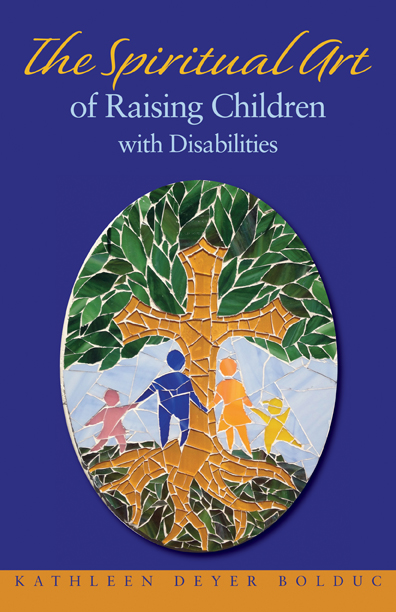The intricate interplay of motherhood and spirituality has perpetually intrigued scholars, philosophers, and laypersons alike. In the Bahá’í Faith, the role of the mother is elevated to an esteemed status, often referred to as a scientific endeavor — a profound amalgamation of nurturing instincts and spiritual enlightenment. This exploration delves into the Bahá’í teachings regarding motherhood, accentuating the spiritual art of raising children. It is a discourse not merely on pedagogical methods, but rather on the holistic development of a child’s spirit, intellect, and personality.
At the heart of Bahá’í teachings lies the belief that every child is born with a pure essence, an inner potential that mirrors divine attributes. This intrinsic purity emphasizes the need for a mother to engage in a spiritual education that transcends mere physical nurturing. The Bahá’í writings articulate that mothers should imbue their children with principles of faith and virtue from their earliest moments. Such teachings posit that motherhood is not just a biological function but a vital spiritual mission destined to shape each child’s character and worldview.
As one reflects on the dynamics between a mother and her offspring, it becomes evident that love forms the cornerstone of this relationship. Bahá’í teachings propagate the idea that a mother’s love fosters an environment ripe for spiritual growth. This nurturing affection serves not only as a psychological anchor but also as a protective fortification against the vagaries of life. The serenity derived from a loving maternal figure fosters resilience, enabling the child to navigate the complexities of existence with grace and poise.
The concept of “spiritual development” occupies a central theme within this context. In the Bahá’í teachings, education is perceived as a holistic process which encapsulates both intellectual and moral dimensions. Mothers are encouraged to cultivate a balanced curriculum that encompasses not just academic learning but also the virtues of honesty, altruism, and humility. Such an integrated approach ensures that children not only achieve material success but also embody the moral characteristics essential for the betterment of society.
Moreover, the nurturing process extends far beyond the confines of the home. A mother’s role is expansive; it includes the creation of a supportive and loving community. The Bahá’í Faith underscores the importance of collective spiritual development. A mother, through her actions and demeanor, serves as a beacon of light that attracts others to the principles of unity, diversity, and equality. This communal aspect strengthens the pillars of motherhood, as it demonstrates that no child is raised in isolation; rather, they are social beings shaped by their relationships with others.
The Bahá’í teachings also encapsulate the idea of teaching children to appreciate diversity. As mothers instill the values of acceptance and love for all mankind, they hone their children’s capacity for empathy, understanding, and connection with others. Such teachings advocate for the cultivation of global citizenship, enhancing a child’s awareness of their role within a much larger tapestry of humanity. It is through such lens that children learn to recognize their interconnectedness with all, thus fostering a spirit of cooperation over competition.
Integral to nurturing is the practice of prayer and meditation, which Bahá’í principles elevate as essential practices for both mothers and their children. These spiritual exercises cultivate a profound sense of inner peace and connectedness to the divine. A mother who engages in prayer not only enriches her spiritual life but models for her children the importance of self-reflection and reliance on divine guidance. This spiritual framework becomes the bedrock upon which children build their moral compass, cultivating an enduring sense of purpose beyond material concerns.
Crucially, Bahá’í teachings advocate for the consideration of a child’s unique gifts and potential. Recognizing that children are distinct manifestations of the divine, mothers are urged to celebrate their individuality rather than impose rigid expectations. This approach fosters an atmosphere of creativity and innovation, where children are encouraged to explore their talents and interests. Such an educational philosophy honors the understanding that each child contributes uniquely to the progress of society, thereby emphasizing the importance of nurturing diverse paths to personal fulfillment.
Spiritual motherhood, according to Bahá’í teachings, also encompasses the practice of patience and resilience. The journey of motherhood is often fraught with challenges, and it is within these trials that a mother’s spiritual mettle is tested. Endurance fosters an invaluable trait in children: an unwavering commitment to their goals and ideals, even in the face of adversity. Thus, motherhood becomes a conduit for transcending obstacles, providing children with vital life lessons that equip them for the future.
In conclusion, the Bahá’í vision of motherhood as a science intricately woven with spirituality elevates the role of a mother to that of a divine educator and nurturer. This profound responsibility encompasses love, moral education, community involvement, and the recognition of each child as a unique expression of the divine. By enlightening future generations, mothers participate in a cosmic endeavor — the evolution of the human soul. In cultivating a culture of peace, understanding, and love, the Bahá’í teachings posit that the spiritual art of raising children is tantamount to nurturing the architects of a harmonious world.
